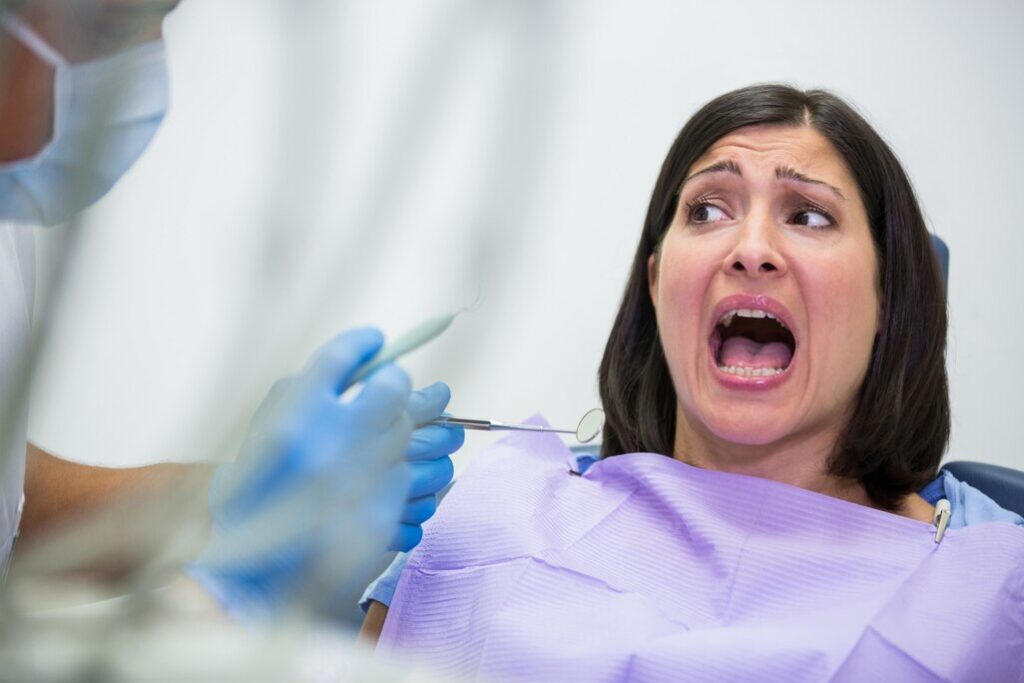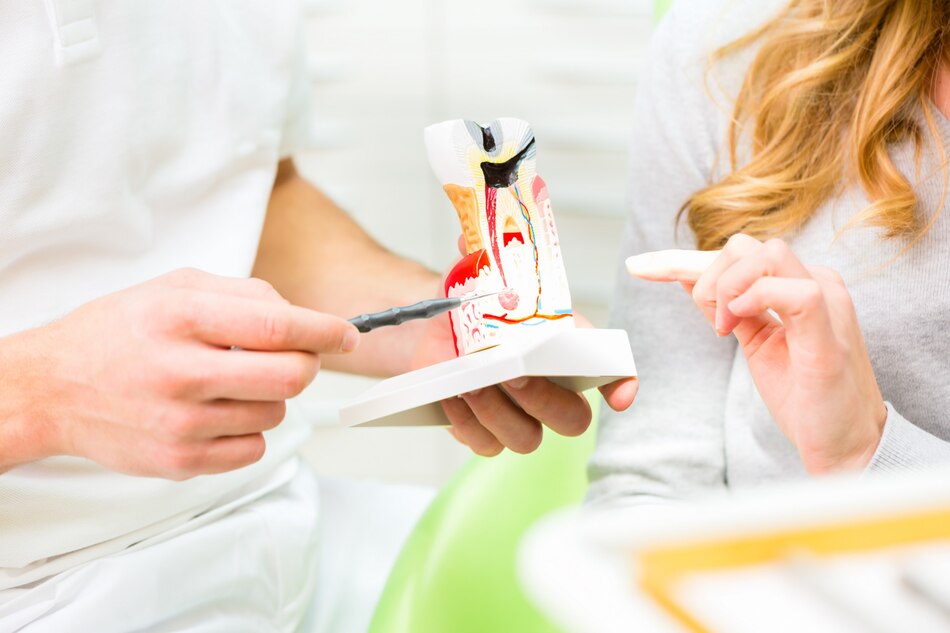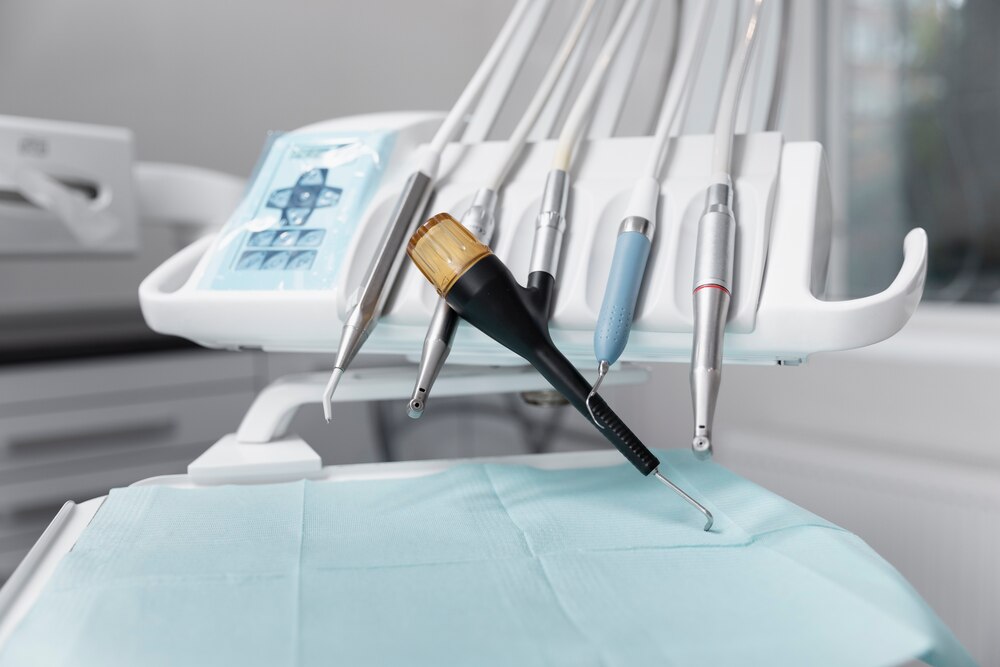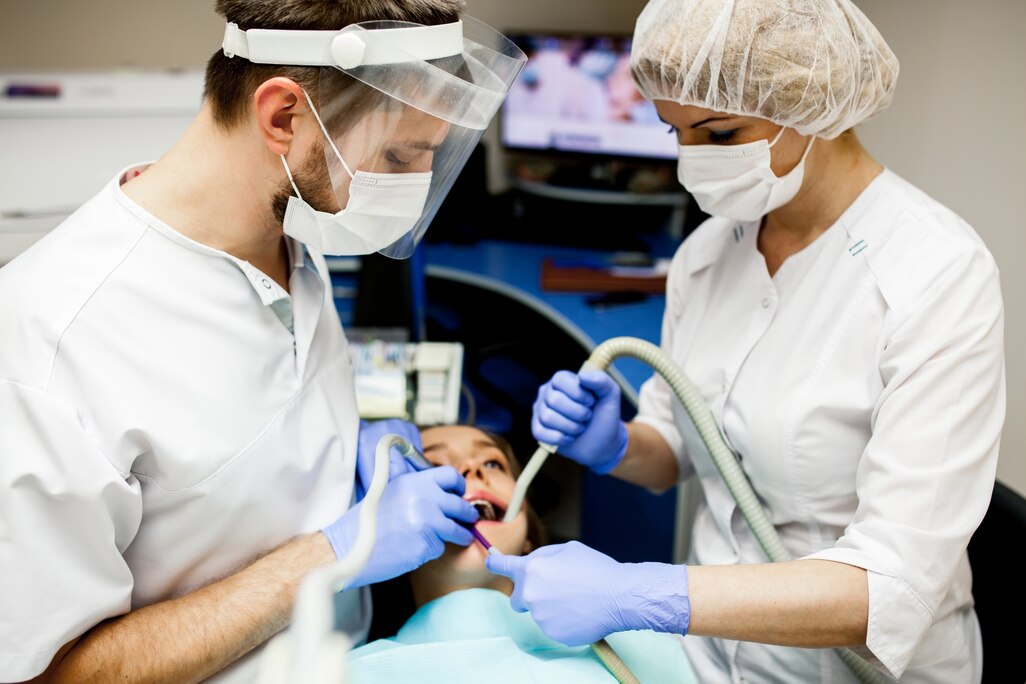Teeth whitening deals near Hammond are one of the most popular cosmetic dental treatments, and it’s no wonder why – a whiter, brighter smile can boost your confidence and make you look years younger.
What is Professional Teeth Whitening?
Professional teeth whitening is a process involving a Hammond Dental Group or other professionals. The bleaching agent is applied to the teeth using a special tray that has been custom-fitted to the patient’s mouth.
Does Professional Teeth Whitening Damage Teeth?
The short answer is no, whitening treatment does not damage teeth. In fact, it is a safe and effective way to whiten teeth. It does not weaken the enamel or cause any other harm to the teeth.
Potential Side Effects of Teeth Whitening
Although whitening treatment is generally safe, some potential side effects can occur. The most common side effect is tooth sensitivity. This is due to the bleaching agent penetrating the enamel and irritating the nerves inside the tooth. This can cause a temporary feeling of pain or discomfort.
Different Types of Teeth Whitenings and Their Potential Risks:
Many people have considered achieving a brighter and more attractive smile. This article will discuss the different types of teeth whitening and the potential risks of each.
Types of Teeth Whitening:
1. Over-the-Counter Products
Over-the-counter products such as toothpaste and strips are the most common and least expensive types of whitening treatments. These products typically contain a mild bleaching agent that can help to lighten teeth over time.
2. Professional Teeth Whitening
Professional whitening treatments use a stronger bleaching agent than over-the-counter products. These treatments are typically performed in a dental office or clinic and can provide more dramatic results.
3. Laser Teeth Whitening
Laser treatments are a relatively new type of whitening treatment. This treatment involves the application of specialized laser light to the teeth to activate a bleaching agent and help to whiten the teeth.
Potential Risks of Teeth Whitening
Whitening treatments are generally considered safe and effective, but there are some potential risks associated with each type of treatment.
1. Over-the-Counter Products
If these products are used incorrectly or too frequently, they can make the enamel of the teeth a little sensitive – as suggested by the NHS.
2. Professional Teeth Whitening
Whitening treatments can be effective, but there is a risk of sensitivity and irritation to the gums and lips.
3. Laser Teeth Whitening
Laser whitening treatment is the most expensive type of teeth whitening and insurance doesn’t always cover its cost.
Do Teeth Whitening Damage Teeth or Safe For Children?
Teeth whitening treatments are becoming increasingly popular, with people of all ages increasingly interested in brightening and improving the appearance of their smiles. But what about children? We all want our children to have the best possible oral health. Right? This often means wanting them to have the whitest teeth possible.
The Risks
While whitening treatments can bring many benefits, it is important to be aware of the potential risks. Teeth whitening treatments involve the use of bleaching agents, which can cause side effects such as gum irritation, tooth sensitivity, and even damage to the enamel of the teeth. Children’s teeth are still developing and are more vulnerable to being damaged by harsh chemicals.
What Age is Appropriate?
When it comes to whitening treatments, the age of the child is an important factor to consider. This is because their teeth are still developing, and their gums and enamel may not be able to tolerate the bleaching agents used in the treatments.
Alternatives
If your child is interested in teeth whitening deals, some alternatives may be suitable. Some dentists may offer professional cleaning services, which can help to remove staining and discoloration from the teeth. It is also important to make sure that your child is brushing and flossing regularly, and that they are avoiding foods and drinks that can stain the teeth.
Whitening treatment does not damage the teeth or cause any long-term damage. However, some potential side effects can occur, such as tooth sensitivity, gum irritation, and temporary tooth discoloration.
Additionally, there are several whitening treatments, each with its advantages and risks. It is necessary to consult with a dental professional to determine the best course of action and to discuss any potential risks. These treatments can bring many benefits to an adult’s oral health.





